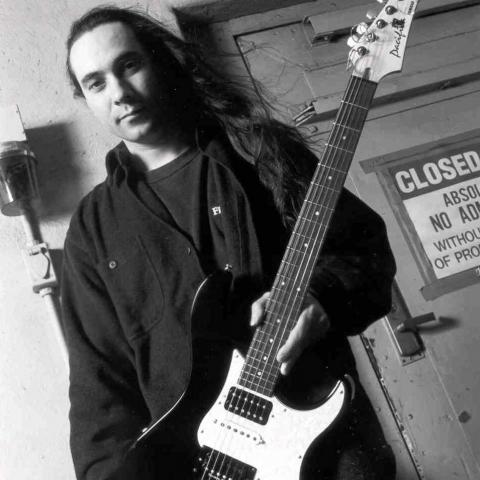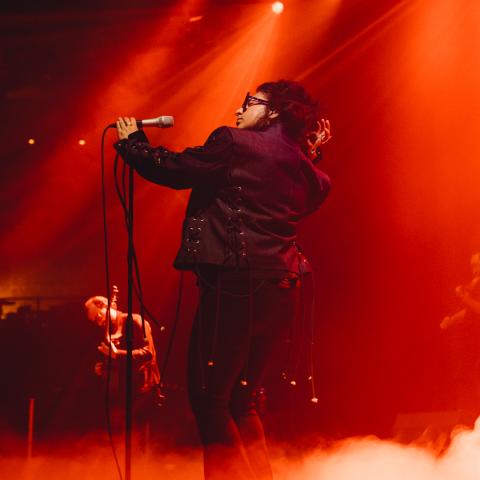New Media, New Money
During the first decade of the twenty-first century, the music industry’s business models have been changing rapidly. While there are still lots of issues to sort out regarding copyright, royalty payments, file sharing, the future of the CD, and more, one thing is certain: the digital age offers more opportunities for composers of original music than ever. Twenty years ago, options for songwriters and composers involved writing mainly for albums, films, television, theater productions, advertising, and a few other channels. Today, in addition to traditional outlets, a great deal of music is being used in new media such as video games, websites, webisodes, podcasts, ringtones, and more. For those who write music, the future holds plenty of promise. According to the experts cited below, composers should be aware of these new opportunities and learn how to protect their intellectual property as the territory of the music industry expands.
Music Vehicle
Michael Laskow, founder and CEO of independent A&R company TAXI, sees burgeoning options for people who write music. Exploiting the wealth of contacts that Laskow made during his career as an audio engineer in the 1970s and 1980s, TAXI acts as a liaison between the organization’s 12,000 members and 600 industry clients seeking original songs and instrumental music for albums, TV, film, video games, and more. The company is an important vehicle for positioning its members to sign deals that have resulted in hit songs for major artists. Other members have placed their music in various mediums that provide steady income.
“To us the possibilities seem limitless,” says Laskow. “No matter what kind of music someone wants, there is someone out there making it. We get our members’ music onto the desks of the people who are looking for it. It is a very simple formula that has legs no matter what shape the music industry may take in the future.”
TAXI members pay a $300 annual fee to receive biweekly listings and then submit tracks they think fit the bill to the TAXI staff. The company’s screeners vet the entries and pass the best ones on to the client. The staff also provides written critiques of the submissions so that members can understand why their music was or wasn’t forwarded to a client and receive feedback to help them grow as composers.
Since opening its doors in 1992, TAXI has served an important function with labels and decision makers in the TV and film industry. “I learned early on that they didn’t want to listen to tracks from everybody, but if the music was filtered by someone whose ears they trusted, they’d listen to it. For 15 years, we’ve acted as the go-between.”
Laskow predicts that music will become more prominent on the web. “The day will come when the Internet will be more music oriented than it is now,” he says. “Virtually every site will have music. The opening page of a site for curing breast cancer, let’s say, might feature music that appeals to women. When you change pages, it will be like going to a different scene in a movie, and the music will have to change. If a website is 1,000 pages deep, it presents the potential for as many as 1,000 different pieces of music.”
Laskow sees a fruitful market that musicians working in home studios can tap for additional revenue streams. Much of the music that TAXI places is of “broadcast quality,” which can be less than the 44.1 kilohertz sample rate of a CD master. Laskow sees a demand, from fully produced songs for publishers to short, instrumental mood pieces sought by music libraries and various new media outlets. Even older recordings of original music have value. “Somewhere out there, someone could be looking for a period piece,” Laskow says. “Why let your tapes just sit in a drawer? Just because some of your music is old doesn’t mean that it can’t earn you money.”
The New Game
During the mid-1990s, award-winning composer and guitarist Shawn Clement ’88 made his entrée into composing for film, TV, and new media. He was working in the mailroom at Sony Pictures in Los Angeles and made some important industry connections. “I was surrounded by the people you want to get to,” Clement says. “I passed around a lot of tapes of my music, and around 1995, I started getting work writing for independent films.

Shawn Clement ’88 (visit www.clemistry.com)
“The call from Universal to score the cartoon series The Savage Dragon was my big break. After that I started doing Buffy the Vampire Slayer and reality TV shows like World’s Most Dangerous Police Videos. Things snowballed from that point.” Now Clement has his own studio north of Los Angeles and, at the time of our conversation, was composing for six reality shows (Most Shocking, Most Daring, World’s Most Amazing Videos, Anatomy of a Crime, The Sheriff, and American Detective) as well as a film score.
In addition to writing for more than 130 TV shows and movies, Clement has also composed music for nine video games. His first, Donald Duck Goin’ Quackers, was released in 2000; more recent titles include Kim Possible: What’s the Switch? and Open Season. Clement says that the Donald Duck project presented new musical challenges and video games offered a new outlet for his music.
“That game had four rooms where Donald would go,” says Clement. “They wanted big-band music in one room, horror music in another, a third room was an Inca temple, and the last was a rock forest. The music had to relate thematically and there were multiple cues for each room. I ended up writing about 200 pieces of music for the game. I kept things ambiguous so that the music could loop, cut to a transition piece, and then go into the next cue.”
Over the years, Clement has learned which musical rights to retain and which, when it’s advantageous, can be bargained. “The game developer generally owns the music,” he says. “I get the writer’s share, they get the publishing. The video-game world is still a little green about some legal issues. Right now, there are no performance royalties for games. I have to explain that it’s not going to cost the company anything for me to own the writer’s share. If music written for a game is performed on TV or radio, BMI or ASCAP pays the royalties to the writer.
“If you are doing a game for a big company, it’s lucrative work. The up-front money will be better than what you’d get for an independent film or a TV show. That’s because there is no back end. I run into video-game composers who are signing everything away. I maintained the writer’s share on the music I wrote for Batman, Tarzan, and Donald Duck games. All of the music was later reused in cartoon series, and I get royalties for that. If I’d signed the writer’s share away, I would have lost that income.”
Clement predicts that as games merge more with the film and TV world, up-front fees paid to composers will decrease if the game developers and music rights organizations devise a scheme for payments to writers for subsequent uses of the music.
For his extensive work in TV and movies, Clement receives payments from weekly airings and residuals from rebroadcasts. “I did a show called Police Videos that ran for five years on network TV,” he says. “It went into syndication, and now it’s on cable and is shown in 35 countries. This is a show I did over 10 years ago, and the money that still comes in from it is crazy. I never thought it would be on cable stations 30 or 40 times a week. This is why you want to hang on to as much control over your music as possible. Thirty years from the time you did the work, it will be pretty cool to find checks still coming in.”
Rights Movement
Chris Amenita, senior vice president of ASCAP in New York, a performing rights organization that advocates for its members, is on the front lines of new-media showdowns. Like Clement, he urges writers to become educated about the potential value of their music in light of new uses and expanding technologies. Amenita sees the dilemma of writers who are asked to relinquish all rights to their music for an initial payment and the promise of visibility a project will give them.
“There is a keen desire by content producers to buy out all the rights they need with an up-front fee,” Amenita says. “It puts writers in a position where they worry that if they don’t give these rights up, they may lose an opportunity because someone else is willing to take the job. It’s the hardest thing for those just breaking in to negotiate. Writers have to determine the value of exposure versus the value of the rights to their music.”
ASCAP is working to educate new-media developers about proper compensation for composers. It assesses appropriate fees for websites that use music but have less traffic than the larger sites such as Yahoo and the networks. The organization is also exploring sites that have aggregation methods enabling groups of people to play games remotely. Since music is a central feature of games, ASCAP is involved in an effort to require that a performance royalty be paid to writers. Many view multiplayer Internet gaming essentially as a broadcast of a game composer’s music.
Amenita says that while buyouts in the “analog world” were pretty common in TV and film, writers always maintained rights for public performance. “If a person got a buyout or a sync fee, they would still receive a royalty if music from the show was performed somewhere else,” Amenita says.
In the digital world, more entities are asking composers for all rights at the outset because it makes it simpler for companies to repackage and resell their products. In the video-game industry, there are often game sequels, TV or movie spinoffs, and soundtrack albums where the music may be reused.
Amenita advocates separating the performance right from the original fee paid to the writer to create and synchronize the music. “From a writer’s perspective, the performance and mechanical royalties are how you are going to get paid,” Amenita says. “If you’re not a performing musician, you aren’t going to get paid for concerts or T-shirt sales. Songwriters have to understand their rights and be vigilant about them.”




